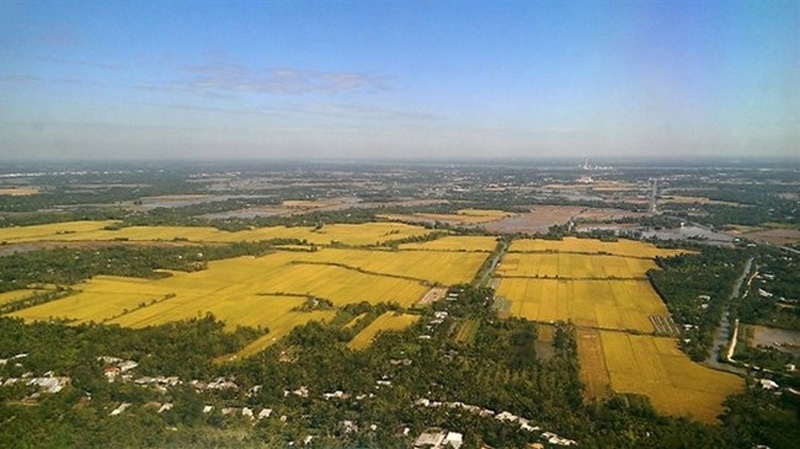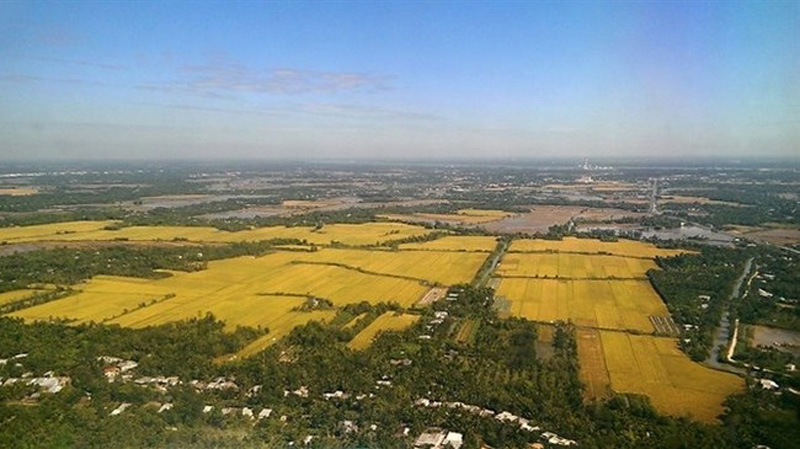
A national land database is due for completion in 2020 and information on land from the smallest administrative unit to the central level will be available.
The Ministry of Natural Resources and Environment (MONRE)
said at a recent conference that the database will be accessible to the public.
The digitisation of land records from paper records is part
of Vietnam’s e-government programme, signifying the Vietnamese Government’s
latest attempts to catch up with the digital age and the advent of the fourth
industrial revolution.
The land database is not just an archive of information, it
will also serve as a crucial tool for State management and satisfy the demands
for access to land information, as well as the land policies of all
organisations, businesses and the public in a transparent, objective, and
convenient manner.

Rice fields in Thot
Not district in the Mekong Delta province of Can Tho.
The land database will also serve to ensure that efforts to
reform administrative procedures by various ministries and State agencies –
especially between the environment ministry, tax, and customs bureaus – will be
conducted in a coordinated manner.
Therefore, aside from
consolidating land-related policies, legal frameworks, and planning and
financial tools, the modernisation of the cadastral document system and
creation of the land database and national land information system are top
priorities on the ministry’s upcoming agenda, said MONRE Minister Tran Hong Ha.
Source: VNA
According to data from the Hoa Binh Provincial Party Committee, the industrial production index for the first six months of 2025 is estimated to have increased by 20% compared to the same period last year. This marks the highest year-on-year growth rate for this period since 2020.
In the first six months of 2025, Hoa Binh province’s export turnover was estimated at 1.145 billion USD, marking an 18.11% increase compared to the same period in 2024. Import turnover was estimated at $ 804 million, a 17.15% increase, which helped the province maintain a positive trade balance.
The lives of the ethnic minority farmers in Tan Lac district have gradually improved thanks to the new directions in agricultural production. This is a testament to the collective strength fostered through the professional associations and groups implemented by various levels of the district’s Farmers’ Union.
With the motto the "product quality comes first,” after nearly one year of establishment and operation, Muong village’s Clean Food Agricultural and Commercial Cooperative, located in Cau Hamlet, Hung Son Commune (Kim Boi district), has launched reputable, high-quality agricultural products to the market that are well-received by consumers. The products such as Muong village’s pork sausage, salt-cured chicken, and salt-cured pork hocks have gradually carved out a place in the market and they are on the path to obtaining the OCOP certification.
In the past, the phrase "bumper harvest, rock-bottom prices" was a familiar refrain for Vietnamese farmers engaged in fragmented, small-scale agriculture. But today, a new spirit is emerging across rural areas of Hoa Binh province - one of collaboration, organisation, and collective economic models that provide a stable foundation for production.
Maintaining growing area codes and packing facility codes in accordance with regulations is a mandatory requirement for agricultural products to be eligible for export. Recently, the Department of Agriculture and Environment of Hoa Binh province has intensified technical supervision of designated farming areas and packing facilities to safeguard the "green passport" that enables its products to access international markets.



